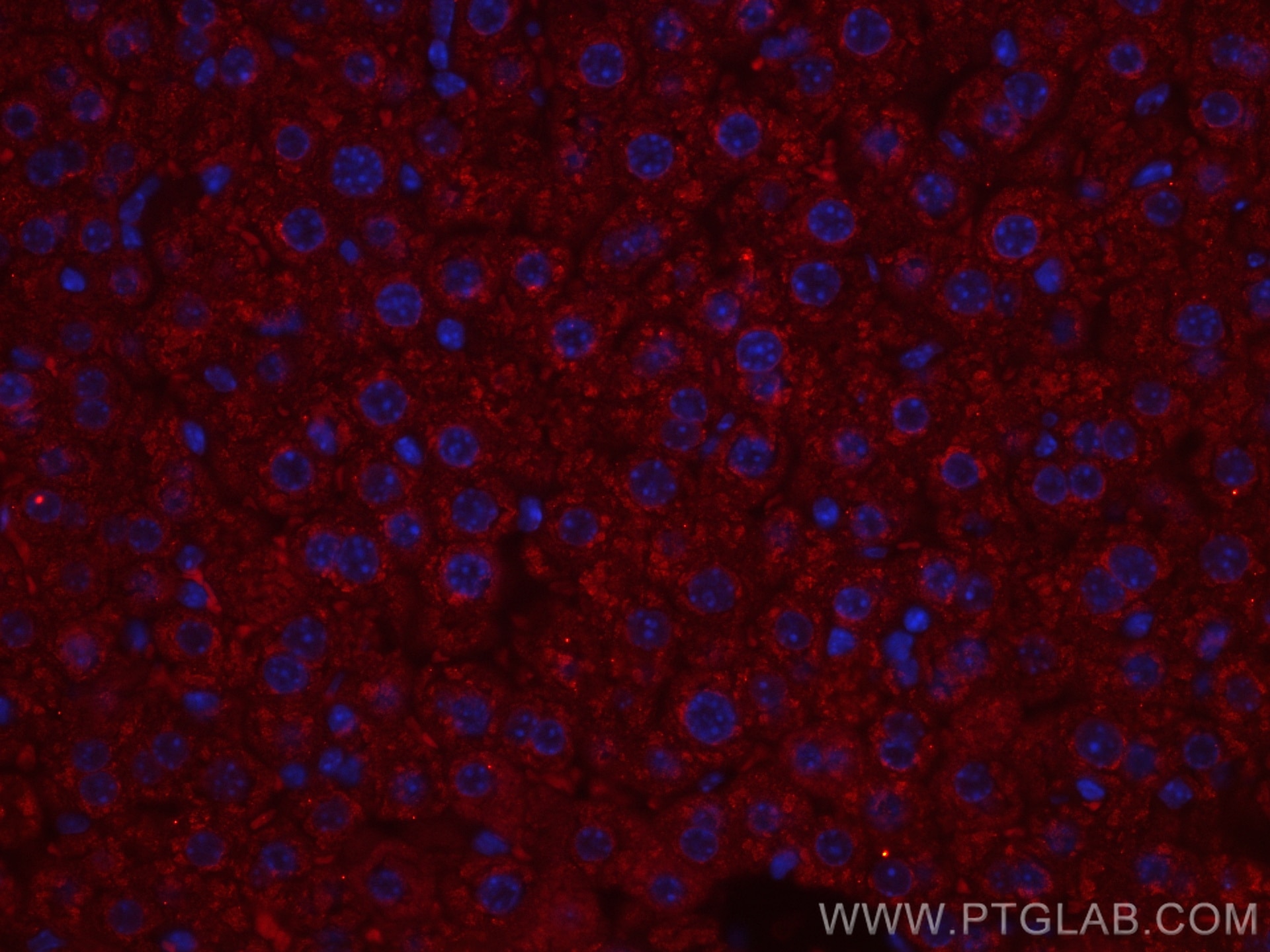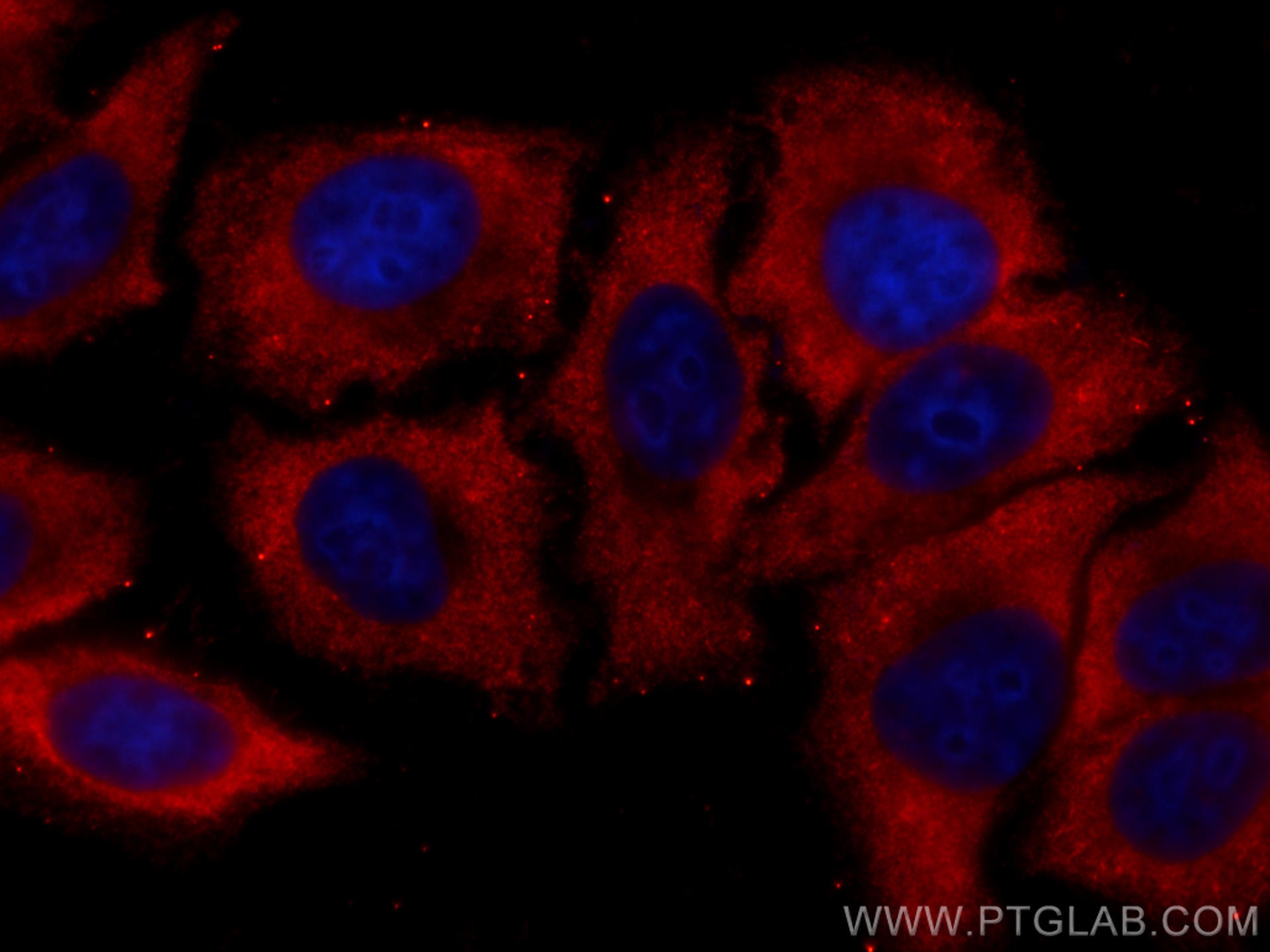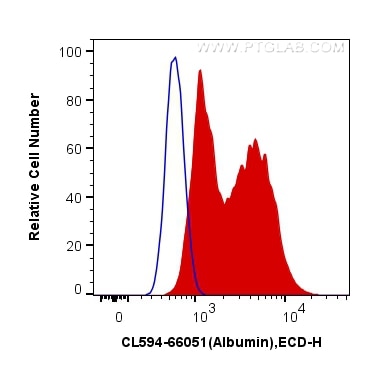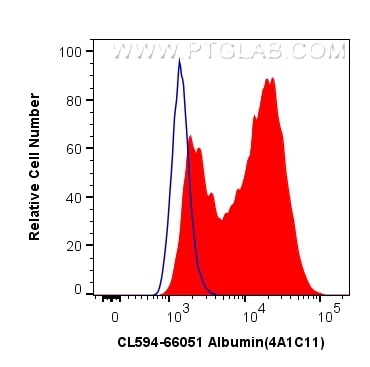Albumin Monoklonaler Antikörper
Albumin Monoklonal Antikörper für FC (Intra), IF
Wirt / Isotyp
Maus / IgG1
Getestete Reaktivität
human, Maus
Anwendung
IF, FC (Intra)
Konjugation
CoraLite®594 Fluorescent Dye
CloneNo.
4A1C11
Kat-Nr. : CL594-66051
Synonyme
Galerie der Validierungsdaten
Geprüfte Anwendungen
| Erfolgreiche Detektion in IF | Mauslebergewebe, HepG2-Zellen |
| Erfolgreiche Detektion in FC | HepG2-Zellen |
Empfohlene Verdünnung
| Anwendung | Verdünnung |
|---|---|
| Immunfluoreszenz (IF) | IF : 1:50-1:500 |
| Durchflusszytometrie (FC) | FC : 0.40 ug per 10^6 cells in a 100 µl suspension |
| It is recommended that this reagent should be titrated in each testing system to obtain optimal results. | |
| Sample-dependent, check data in validation data gallery | |
Produktinformation
CL594-66051 bindet in IF, FC (Intra) Albumin und zeigt Reaktivität mit human, Maus
| Getestete Reaktivität | human, Maus |
| Wirt / Isotyp | Maus / IgG1 |
| Klonalität | Monoklonal |
| Typ | Antikörper |
| Immunogen | Albumin fusion protein Ag9885 |
| Vollständiger Name | albumin |
| Berechnetes Molekulargewicht | 609 aa, 69 kDa |
| Beobachtetes Molekulargewicht | 66 kDa |
| GenBank-Zugangsnummer | BC034023 |
| Gene symbol | ALB |
| Gene ID (NCBI) | 213 |
| Konjugation | CoraLite®594 Fluorescent Dye |
| Excitation/Emission maxima wavelengths | 588 nm / 604 nm |
| Form | Liquid |
| Reinigungsmethode | Protein-G-Reinigung |
| Lagerungspuffer | BS mit 50% Glyzerin, 0,05% Proclin300, 0,5% BSA, pH 7,3. |
| Lagerungsbedingungen | Bei -20°C lagern. Vor Licht schützen. Nach dem Versand ein Jahr stabil. Aliquotieren ist bei -20oC Lagerung nicht notwendig. 20ul Größen enthalten 0,1% BSA. |
Hintergrundinformationen
Albumin is the most abundant protein in blood plasma. Alterations of level of serum albumin are linked to variety of diseases. Albumin is expressed exclusively by well-differentiated hepatocytes, thus anti-albumin has been used to mark hepatocytes. (21388516, 23832071)
Protokolle
| Produktspezifische Protokolle | |
|---|---|
| IF protocol for CL594 Albumin antibody CL594-66051 | Protokoll herunterladen |
| Standard-Protokolle | |
|---|---|
| Klicken Sie hier, um unsere Standardprotokolle anzuzeigen |





